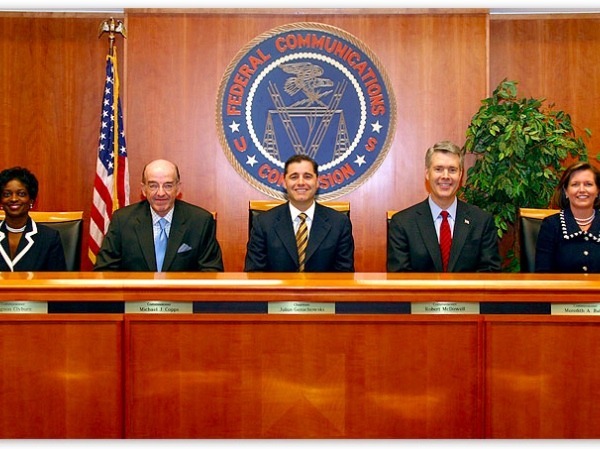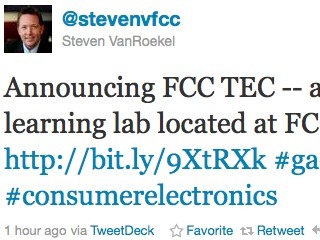
In a decision split down party lines, the Federal Communications Commission (FCC) approved Tuesday new net neutrality rules aimed at improving transparency and restricting blocks and discrimination against users, services or content.
Commissioners Michael J. Copps and Mignon Clyburn joined Chairman Julius Genachowski, nominated by President Barack Obama in March 2009, in approving the order, despite dissenting votes from commissioners Robert M. McDowell and Meredith Attwell Baker, splitting the decision between Democrats voting “yea” and Republicans voting “nay.”
The fragmented approval amongst the FCC’s directors foreshadowed reception of the order in the public and the media, with many saying that, while an open exchange of information on the Internet is vital to its health, the FCC either overstepped its powers or didn’t go far enough.
As it stands, the newly adopted FCC order zeroes in on three key rules: “Transparency,” “No Blocking” and “No Unreasonable Discrimination.”
The first rule says that broadband Internet providers “shall publicly disclose accurate information regarding the network management practices, performance, and commercial terms,” which sounds nice superficially. In practice, it could amount to mountains of technical jargon that no ordinary consumer will be able to comprehend.
“No Blocking,” the second rule, declares that those same providers “shall not block lawful content, applications, services, or non-harmful devices, subject to reasonable network management.” Websites and video/voice telephony services also fall under that same protection. What exactly is “subject to reasonable network management” seems a little vague, but then, such specifics are often decided in court.
Finally, the third rule states that broadband providers “shall not unreasonably discriminate in transmitting lawful network traffic over a consumer’s broadband Internet access service,” one of the most sought-after protections by net neutrality enthusiasts. Still, the ambiguities involved in what constitutes “unreasonable” could prove a serious problem in the future.
“In my book, today’s action could have, and should have, gone further,” Copps said. “Going as far as I would have liked was, however, not in the cards.”
So says the Democrat. The Republican commissioners don’t even address the issues at hand, saying only that the FCC has reached beyond its authority.
“The FCC is not Congress,” McDowell said. “We cannot make laws.”
That will probably be up to the courts to decide.
I’ve collected a few statements on the ruling from relevant Web companies for your perusal:
Facebook via Andrew Noyes, Manager of Public Policy and Communications:
We appreciate the FCC’s focus on protecting consumers’ freedom to access the Internet. Preserving an open Internet that is available to innovators — regardless of their size or wealth — will promote a vibrant and competitive marketplace where consumers have ultimate control over the content and services delivered through their Internet connections.
Timothy Karr, the campaign director of Free Press and the SavetheInternet.com Coalition:
We’d be lying if we didn’t tell you that this vote was a major setback. The new rule doesn’t do enough to stop the phone and cable companies from dividing the Internet into fast and slow lanes, and it fails to protect wireless users from discrimination. It lets AT&T block your access to third-party applications and require you to use its own preferred applications.
Skype via Christopher Libertelli, Senior Director of Government & Regulatory Affairs, Americas:
In any complicated FCC rulemaking, there are going to be trade-offs and compromises. On balance, this decision advances the goal of keeping the Internet an open and unencumbered medium for Skype users. Specifically, we support the Commission’s decision that it will not tolerate wireless carriers who arbitrarily block Skype on mobile devices. This decision protects a consumer’s entitlement to use Skype on their mobile devices and we look forward to delivering further innovation in this area.
Twitter via Carolyn Penner, Communications:
We don’t have a comment on that.
The Electronic Frontier Foundation (EFF) has yet to reply to comment.



















